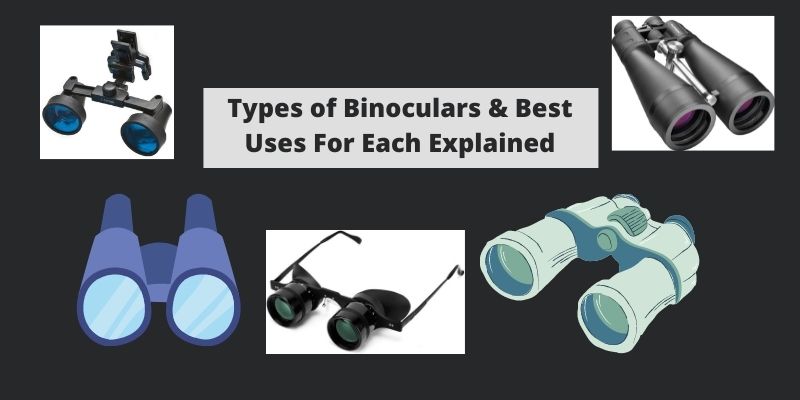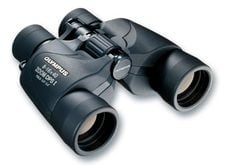The Importance of Binoculars in Education And Learning and Scientific Research: How These Optical Instruments Contribute to Learning and Exploration
The assimilation of field glasses right into educational settings and clinical research study is commonly ignored, yet their contribution to improving empirical skills is substantial. In self-controls ranging from ecological scientific research to astronomy, field glasses serve as necessary devices that advertise questions and crucial reasoning.
Enhancing Observational Skills
In educational and research study setups, using binoculars considerably improves empirical skills amongst trainees and experts alike. These optical instruments help with a much deeper understanding of far-off subjects, allowing users to observe details that would otherwise stay hidden. By utilizing binoculars, learners can examine wildlife, expensive sensations, and geological developments, fostering an extra extensive connection to the subject issue.
Binoculars function as necessary tools in field studies, motivating trainees to engage proactively with their environment. With improved observation, they can collect data better, bring about boosted logical abilities. This hands-on experience permits for the growth of critical thinking, as pupils have to analyze what they see and relate it to academic understanding.

Bridging Concept and Method
Observational skills developed through making use of binoculars naturally result in an extra extensive integration of theoretical understanding with useful application. By taking part in direct observation, students can transform abstract concepts into tangible experiences. This synergy promotes a much deeper understanding of scientific principles as pupils link theoretical frameworks with real-world sensations.
For example, when researching bird biology, trainees can apply their knowledge of bird makeup and behavior via the lens of binoculars, observing qualities such as plumage variation, feeding behaviors, and migratory patterns. This direct interaction not just strengthens theoretical ideas yet likewise grows vital thinking and logical abilities.
Furthermore, the use of binoculars motivates learners to formulate hypotheses based upon their observations, thereby enhancing their scientific questions abilities. They can actively test these hypotheses in the area, causing a more experiential discovering environment that advertises interest and exploration.
Fundamentally, binoculars work as an important device in bridging the gap in between classroom discovering and fieldwork - Binoculars. They equip pupils to come to be active participants in their education and learning, encouraging an alternative approach to understanding the environment and its complexities. Thus, the integration of theory and practice is critical for promoting educated and involved students
Applications in Environmental Science
Making use of field glasses in ecological science improves the ability to observe and examine ecological communities with better precision. These optical instruments are sites essential for carrying out area researches, allowing scientists to keep track of wild animals populations, assess plant health, and assess habitat conditions without disturbing the native environment. Binoculars facilitate the identification of varieties at different distances, enabling researchers to collect essential information on biodiversity and habits.
In eco-friendly study, binoculars are important tools for ornithologists studying bird habits and movement patterns. They enable researchers to record observations over extended periods, adding to beneficial longitudinal studies - Binoculars. Additionally, binoculars play a crucial role in habitat analyses, as they enable the comprehensive monitoring of plant areas and their interactions within communities
Ecological teachers additionally profit from field glasses, as these tools enhance experiential knowing chances. Students can involve directly with their environments, promoting a much deeper gratitude for environmental systems. By incorporating binoculars into academic programs, instructors can inspire the future generation of environmental scientists.
Function in Astronomy Education
Making use of field glasses in astronomy education supplies an easily accessible gateway for students and enthusiasts to check out celestial sensations (Binoculars). Unlike huge telescopes, binoculars are mobile, straightforward, and fairly economical, making them a suitable initial tool for observing the evening sky. Trainees can quickly engage with the cosmos, promoting a hands-on knowing experience that boosts their understanding of expensive principles
Field glasses permit users to observe a range of holy items, consisting of the Moon, planets, and celebrity clusters. This availability urges expedition and monitoring, crucial components of scientific questions. Trainees can develop vital abilities such as data collection, observation techniques, and even fundamental astrometry. Significantly, field glasses function as a bridge see page to much more complicated huge instruments, offering foundational experiences that can trigger much deeper interest in the field.
In educational setups, directed binocular sessions can promote group partnership and conversation, enhancing the finding out experience. The shared experience of observing celestial spheres can grow a feeling of neighborhood among learners. On the whole, field glasses play a critical role in debunking astronomy, making it friendly useful reference and appealing for individuals whatsoever levels of education and learning.

Inspiring Interest and Questions
Field glasses not just assist in the observation of holy sensations however also fire up a sense of inquisitiveness and inquiry amongst pupils. By providing a more detailed take a look at remote things, field glasses encourage students to ask questions and discover the environment around them. This device transforms easy understanding into an active, appealing experience, fostering a deeper understanding of clinical concepts.
When trainees use binoculars to observe wildlife, landscapes, or huge items, they develop observational abilities that are critical for scientific query. The act of concentrating on particular details triggers them to formulate hypotheses, conduct examinations, and reason based on their observations. This procedure not only boosts their essential believing capacities however likewise supports a long-lasting passion for expedition.
Furthermore, field glasses can link the void between academic knowledge and real-world application. As trainees observe phenomena firsthand, they can connect class discovering to functional experiences, making education more pertinent and significant. Ultimately, making use of binoculars in instructional settings acts as a stimulant for curiosity, equipping trainees to pursue knowledge with excitement and cultivating a feeling of question the world around them. This way, binoculars play an important duty in inspiring future generations of researchers and thinkers.
Verdict
In recap, field glasses act as crucial devices in education and learning and scientific study, significantly enhancing observational abilities while bridging the gap between academic expertise and practical application. Their varied applications in areas such as ecological scientific research and astronomy underscore their relevance in fostering curiosity and query amongst trainees. By promoting thorough examinations of distant subjects, field glasses not just influence the future generation of researchers however likewise grow a profound gratitude for expedition and the scientific method.